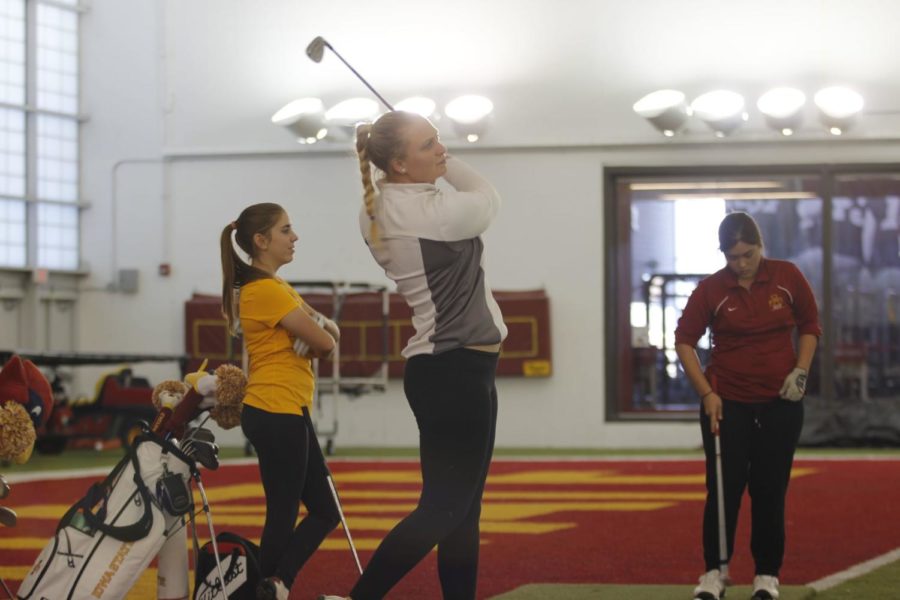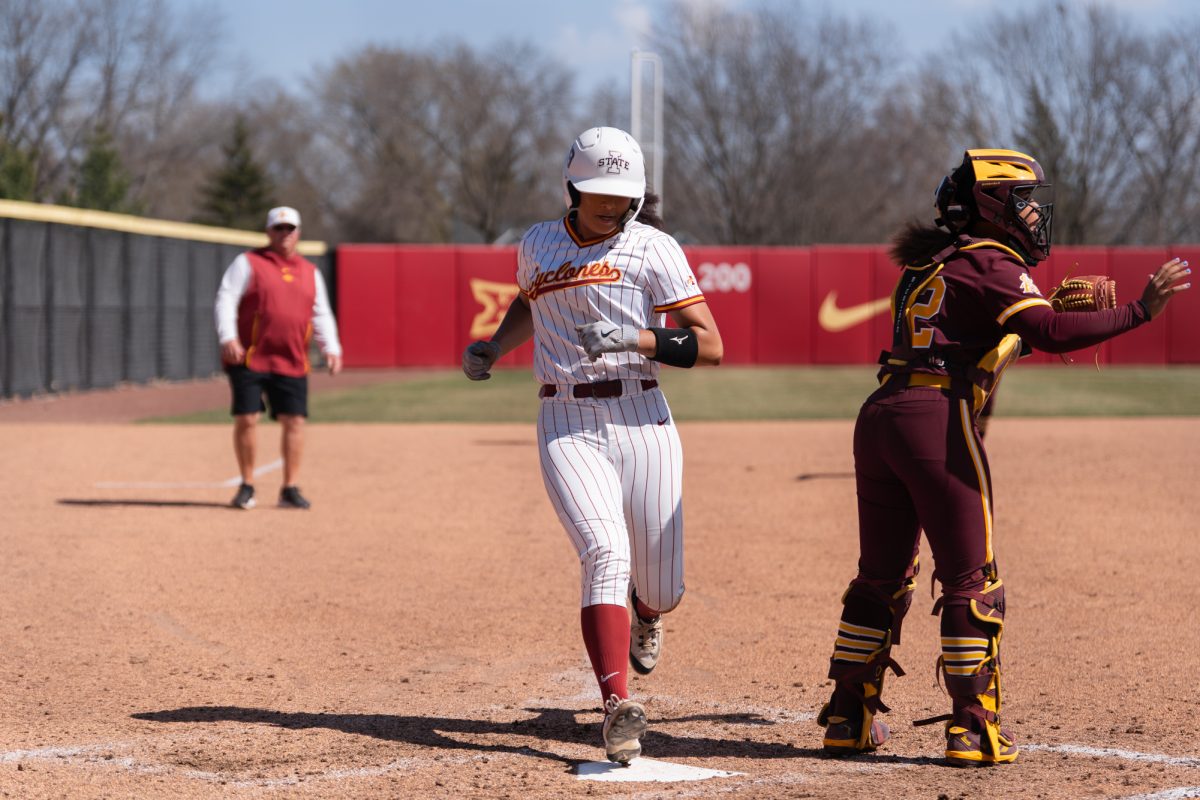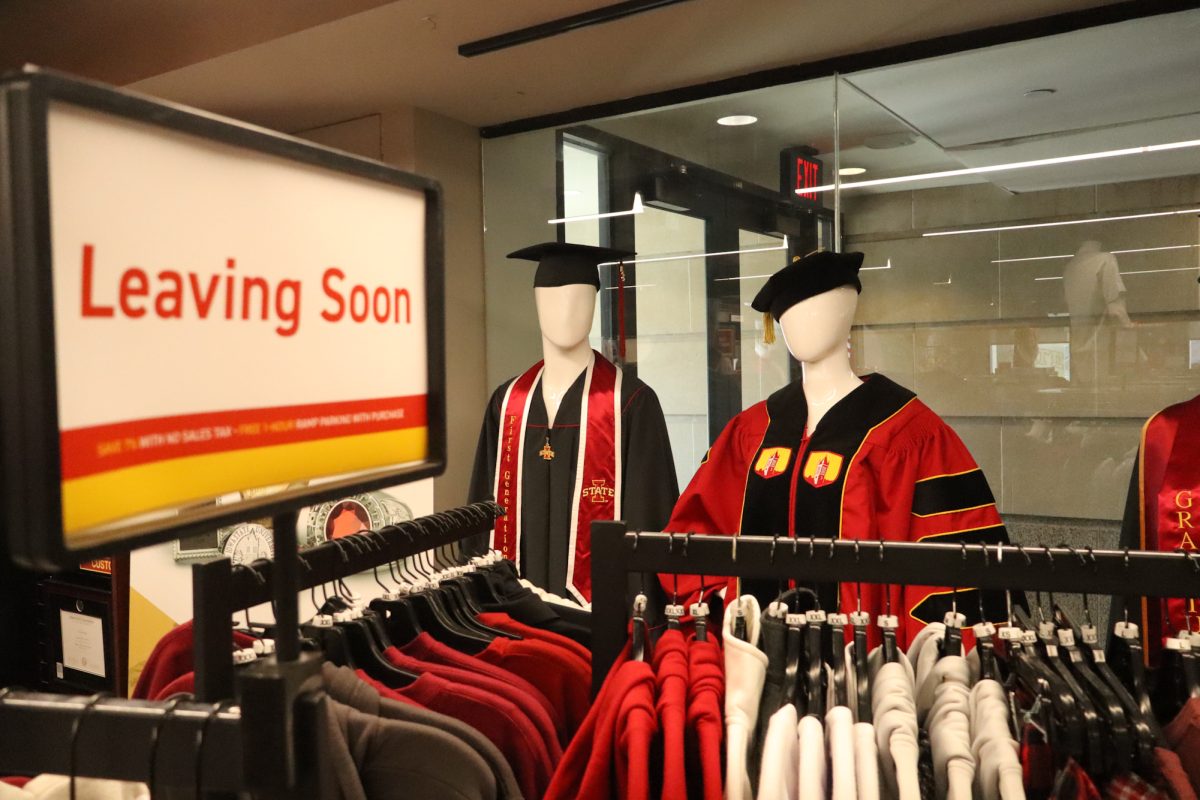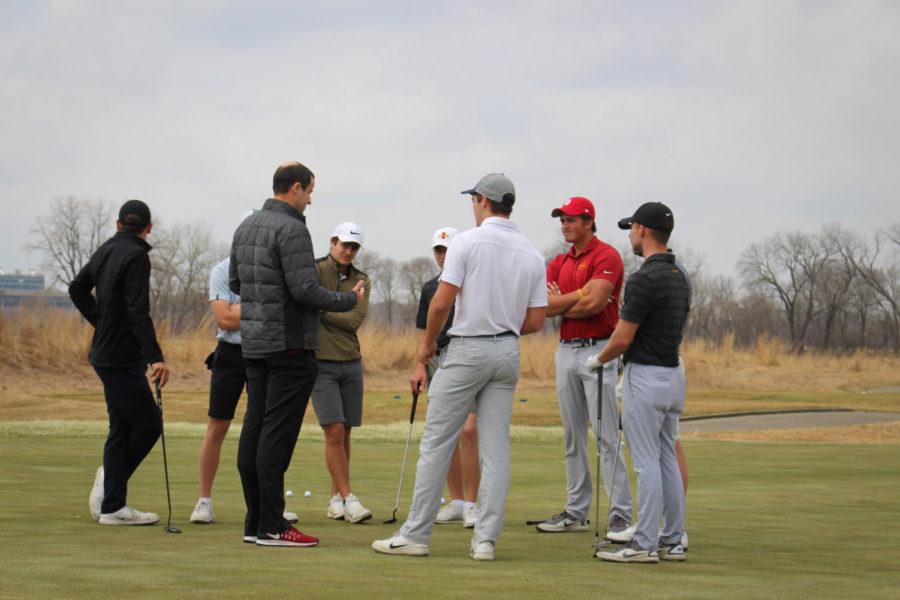ISU women’s golf uses wide range of diversity to advantage
March 14, 2016
It’s the end of practice and the team is competing in its last drill of the day. Teams of two alternate taking shots at bags placed randomly on the field in front of them.
The action of the drill is calculated and fast-paced. The competitive drive is emanating from the girls and they are completely engulfed in their objective. Finally, the last bag is hit and the winning team embraces in victory.
The others look down, disappointed with the finish. However, almost immediately afterward they all put their competitive nature aside. Everyone walks together down the field, talking and laughing, picking up their balls as if just a moment ago they weren’t fiercely competing.
At six golfers, the Cyclone women’s golf team has the smallest roster of any team affiliated with Iowa State. However, between the six team members there are four different countries being represented, making it one of the most culturally diverse teams on campus.
Despite the wide range of diversity, the Iowa State women’s golf team is able to blend together and work well as a group.
With half of the team from Thailand, it is the most represented country on the roster. Sophomore Nattapan Siritrai, freshman Parinda Phokan and freshman Chayanit Wangmahaporn all call Thailand their home.
Only one golfer currently on the team is from the America, sophomore M.J. Kamin. Sweden is represented on the team by senior Cajsa Persson and Spain is represented by sophomore Celia Barquin.
Martens is proud of the way all of the girls are able to bring all of their different personalities together and create something of their own unique culture as a team.
“All of the cultures bring something different,” Martens said. “The Spaniards are very feisty and competitive, whereas the Thais are more reserved and quietly competitive. Everyone brings their own positives that creates this Iowa State culture which is what we are all about.”
The team is a close-knit group, even spending much of their time together off of the course. The team likes to hold dinners together where each person brings a dish from their country. Just like the array of food makes for a delicious feast, the wide range of different cultures in the group make for a great team.
When it comes to recruiting, Martens said they just try to look for the best players no matter where they are from. They look for players who want to succeed both academically and athletically, which can be hard to find in a lot of young people anywhere in the world.
“It’s challenging because we travel so much, so you have to be a great student as well as a great player,” Martens said. “We try to look for players that want to come in a be a part of our culture. We want players to come in and want to go toe-to-toe with the southern schools and not want to back down.”
Just like each golfer has come from their own unique culture, they each got started golfing in their own ways. Both Persson and Barquin started generally in the same way, both were raised in a home right next to golf courses and had parents that were golfers.
Wangmahaporn joked with Barquin that she only got into golf because her mother forced her to, but not in the way that it might sound like.
“I was ten,” Wangmahaporn said. “In Thailand, we have really long summer breaks so I had nothing to do and my mother had to work, so she just told me to go play golf and it started from there.”
The girls don’t only notice the differences in their game on the course, but also in their mentalities toward the game as well.
“Here it’s a team thing,” Persson said. “We have to think like a team. It’s like we’re the best or we’re going to make it. So the mentality is a lot different.”
The diversity among the team is not uncommon in the game of golf. In today’s world most sports are only popular among people in specific parts of the world.
For example, football is more popular in North America and soccer is more popular in South America and Europe. However, golf seems to transcend boarders and appeal to many people in all parts of the world.
“I’m not sure why that is,” Persson said. “Golf has always been popular back home. I think the fact that we just became an Olympic sport again is a big change and will play a part in golf’s popularity.”
A mix of cultures could cause players on a team to clash, but the team doesn’t see it that way.
Celia Barquin sees the variety of cultures as a positive on the course.
“I think it actually really benefits us,” Barquin said. “We all play differently and see things differently because of our culture and we are able to learn things from each other’s game.”
There must be at least some truth to Barquin’s statement. The Cyclones finished in second place and set a new team record for 54-hole low score in their last tournament in Miami, Fla. They shot a score of 849, emphatically beating the old record by eight strokes.
Although most of the team will go their separate ways back home after graduating, the friendships and bonds formed on the team are ones that will last a lifetime.







